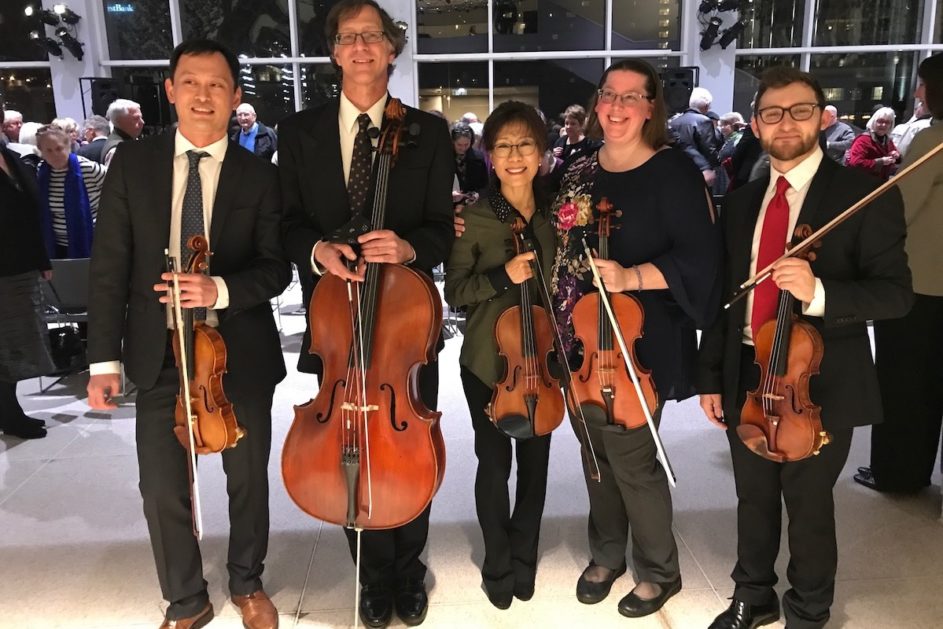One doesn’t go to a classical music recital expecting to hear arrangements of the African-American spiritual “Deep River,” or the Christian hymns “Jesus Loves Me” and “Shall We Gather at the River,” much less be captivated by them.
But a near-sold-out crowd listened intently as KSO concertmaster William Shaub and pianist Kevin Class began last night’s concert, in the Bailey Hall of the Knoxville Museum of Art, with the great Lithuanian-born Russian-American violinist Jascha Heifetz’ 1938 arrangement of the soulful spiritual “Deep River.”
Then, Shaub and Class followed with the most original of American composers, Charles Ives’ “Violin Sonata No. 4,” known as “Children’s Day at the Camp Meeting.”
Through the crashing sounds of the piano that sometimes drowned out the violin, Shaub could be heard playing the melody of “Yes, Jesus Loves Me,” mixed with the sounds and noises of children having a great time playing games.
In the last movement, there was also the unmistakable tune “Hanson Place,” written by the American poet and composer Robert Lowry in 1864, that was used for the setting of the hymn “Shall We Gather at the River.”
Many years ago, when I asked Hungarian-American conductor Zoltán Rozsnyai, then music director of the KSO, who was the greatest American composer, he immediately answered “Charles Ives.”
“Ives knew the European music tradition as well as anyone,” Rozsnyai said. “But he went his own way, writing music that sounded like the clash of cultures and noises he heard every day in the streets of New York and where he lived in Connecticut. He made his living in the insurance business. He didn’t have to write music that was easy for people to listen to. He opened the door for all of the Americans that came later.”
The solo violin part of the program ended with a meaningful playing of the third movement, marked “Allegretto giusto,” of Aaron Copland’s “Sonata for Violin and Piano.” Written in 1944 during WWII, it was part love-note to Copland’s friend and airplane pilot who fought in Europe. Copland’s open, luminous coloring has become synonymous with the sound of American music.
The second half of the program was another piece of American music, Czech composer Antonin Dvorak’s “Viola Quintet in E flat Major,” Op. 97, written in 1893 during the summer he spent in Spillville, Iowa.
For the performance, violist Eunsoon Lee Corliss joined the Principal Quartet of violinists William Shaub and Gordon Tsai, violist Kathryn Gawne and cellist Andy Bryenton.
The folk music character of the opening movement, the dancing rhythms in the second and the light passages in the third were all superbly performed. Their vigorous and satisfying playing was rewarded with an enthusiastic standing ovation that was thoroughly deserved.

